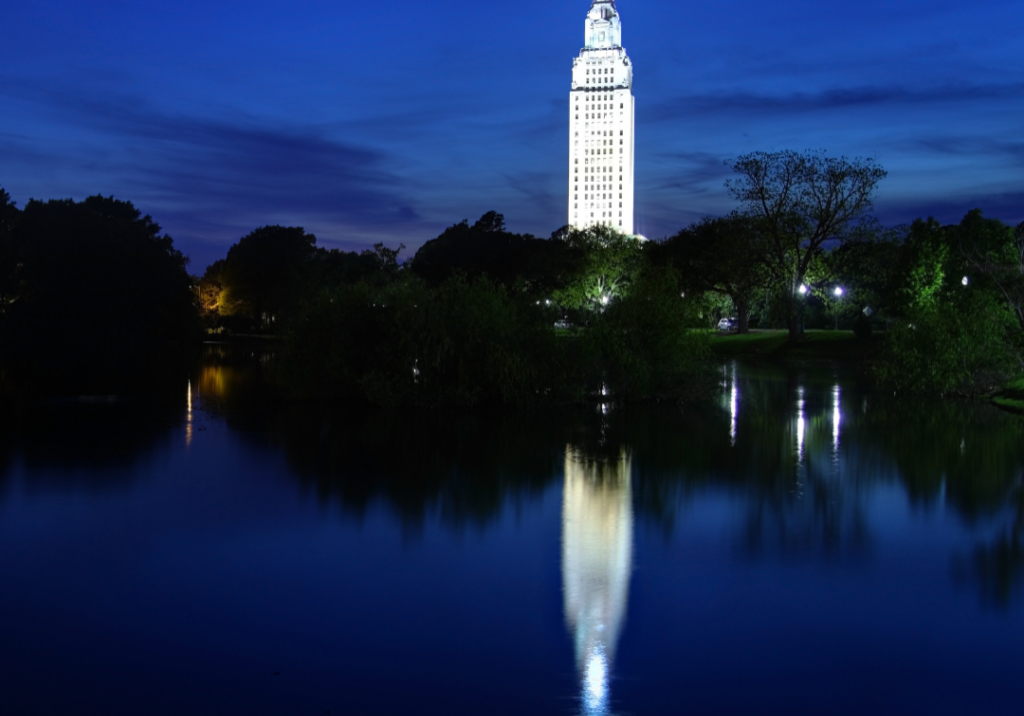Gov. Jeff Landry and his legislative allies are regrouping after voters rejected their proposed rewrite of the constitutional provisions that govern state tax and budget policy. As The Times-Picayune | Baton Rouge Advocate’s Alyse Pfeil explains, state lawmakers are considering a more narrow approach, instead of the comprehensive 115-page rewrite of Article VII that lost by a lopsided margin on Saturday.
At least one piece of legislation aimed at constitutional changes to state tax law will likely be introduced during the regular session this year, said state Rep. Julie Emerson, R-Carencro, who sponsored Amendment 2 and was a key figure in advancing the Landry administration’s tax policy initiatives over the last several months. Emerson, who chairs the House tax-writing committee, said she’s unsure if legislation will take a more “broad strokes” approach or if it will be narrowly focused on certain changes.
The Advocate’s Faimon Roberts notes that while Landry blamed the amendment’s failure on “far left liberals,” the proposal was rejected by voters in conservative strongholds, including his home parish of St. Martin.
(P)erhaps Landry shouldn’t just assume that Louisiana voters are “conditioned to failure,” but rather that they harbor a deep-seated suspicion of their government. The irony, of course, is that Landry has often stoked that sentiment, but now he finds himself on the sharp end of it.
Statue without limitations
The iconic statue of the late Louisiana Gov. Huey P. Long, which has stood watch outside the state Capitol for generations, may soon be a thing of the past. Gov. Jeff Landry wants to replace the Long statue with a statue of President Donald Trump, and has asked legislative leaders to include money for the project in the annual capital outlay budget. Landry told reporters he was moved to make the change after voters across the state roundly rejected four proposed constitutional amendments over the weekend.
“Louisiana has been conditioned for failure for far too long,” Landry said. “And the best way I can think of to move us beyond this embarrassment is to honor my very favorite president. This way, everyone who visits our state Capitol will be reminded of his very stable genius.” Lt. Gov. Billy Nungesser said he expects the Trump statue would become an instant tourist attraction, drawing both fans and foes of the president to the Capitol complex.
Most states will not replace federal Medicaid cuts
Republicans in the U.S. House are attempting to partially offset the $4.5 trillion cost of their proposed tax cuts for the wealthy and large corporations with an $880 billion cut to Medicaid. One proposal would eliminate the 90% federal match rate for states that have expanded Medicaid eligibility through the Affordable Care Act. KFF’s Drew Altman, writing in a guest column for Governing, explains why most states would not be able to replace those funds, and the negative health outcomes that would result:
But if the enhanced match is cut or eliminated, it will illustrate how difficult it will be for states to replace lost federal Medicaid funding. For many states it’s the equivalent of coming up with an amount equal to their corrections or transportation or higher education budgets. … States would also save by no longer providing their 10% state share of the match for the expansion population, unless they have to put more dollars into backstopping local rural and urban public hospitals that will see larger numbers of uninsured.
Altman explains why the proposed federal Medicaid cuts should be causing heartburn for governors:
Governors know they will take the heat if they get billions less in Medicaid funding during their terms, knocking a hole in their state budgets and forcing them and their human services and Medicaid chiefs to make cuts in eligibility, benefits and reimbursement that will upset providers and voters. Cuts to “provider taxes” or directed payments” may be opaque and hard to follow for the public. But governors will do the math, and a lot will depend on how they respond.
Trump funding freeze leaves Louisiana farmers in limbo
The Trump administration’s freeze of hundreds of millions of dollars of previously approved projects from the U.S. Department of Agriculture is leaving Louisiana farmers in a financial bind. The Times-Picayune | Baton Rouge Advocate’s Stephen Marcantel reports on the impact and what the frozen funds were intended for:
Louisiana farmers were expected to receive around $363 million from fiscal year 2025 to 2031 through [Environmental Quality Incentives Program], [Conservation Steward Program] and other programs, according to data collected by the Policy Design Lab. … The projects farmers can participate in includes improving water quality and retention, reducing soil runoff, and improving soil health by installing fencing for livestock. But the main goal is to help improve efficiency in farming, Michael Deliberto, associate professor in agricultural policy at LSU, said.
Farmers rely heavily on loans and reimbursements to finance operations. Marcantel explains how the federal government is going back on agreements it made with farmers:
The federal government reneging on those contracts could erode trust in the USDA and government programs, said John Coppess, a professor at the University of Illinois and author of the Policy Design Lab’s data collection. “You have a farmer that signed a contract, put his own money into the practice and expects a reimbursement. It really shocked me when they froze that reimbursement, essentially breaching the contract,” Coppess said. He added that it’s unclear how much money is currently owed to Louisiana farmers but said that EQIP alone already obligated north of $1 billion for fiscal year 2024.
Number of the Day
73% – Percentage of Americans who are interested in using Direct File, IRS’s free tax-filing service. (Source: Tax Policy Center)
